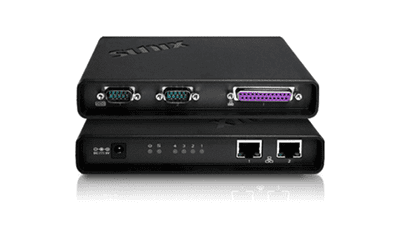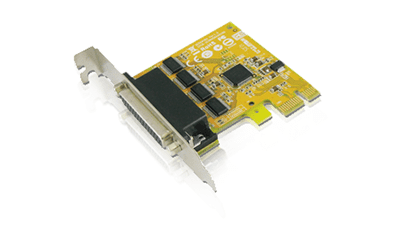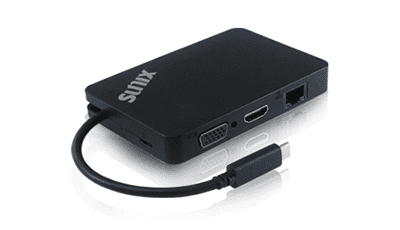GREEN POLICY
"Sustainable development" is the most important issue for our planet, not only for the human race but all current and future business entities. SUNIX Group is committed, through our Green Policy, to adopt mature and sustainable business management. We develop uninterruptedly and increase economic growth by integrating outstanding quality, environmental and social elements. We face the technical challenges bravely, and have faith in a fusion of Green Earth, humanity, and environment.
RoHS Directive (2002/95/EC)
The Restriction of Hazardous Substances in Electrical and Electronic Equipment (RoHS) Directive was passed into law by the European Union (E.U.). It affects manufacturers, sellers, distributors and recyclers of electrical and electronic equipment containing lead, cadmium, mercury, hexavalent chrome, polybrominated biphenyl (PBB) and polybrominated diphenyl ether (PBDE). After July 1, 2006 the use of these materials will be banned in new products sold in Europe. The RoHS Directive complements the WEEE Directive.
WEEE Directive (2002/96/EC)
The Waste Electrical and Electronic Equipment Directive (WEEE) applies to companies that manufacture, sell, distribute, recycle or treat electrical and electronic equipment and to consumers in the E.U. It covers all large and small household appliances, IT equipment, radio and audio equipment, electrical tools and telecommunications equipment.
The Directive aims to reduce the waste arising from electrical and electronic equipment and to improve the environmental performance of all those involved in the life cycle of these products.
Sunix are implementation of this Directive follows a specific timetable. Also committed to protecting people and the environment and we are working on identifying any materials used in our processes that could pose a potential hazard to our employees, customers or the environment.
Through voluntary and responsible actions, each and every SUNIX employee will strive to achieve a better environment.
We Shall
• Design and manufacture products with consideration of the environmental health and safety.
• Comply with or exceed the standard of relevant legislation and regulation.
• Protect local and wider communities from environmental damage.
• Measure and continually improve the environmental impact.
• Provide safe working conditions for employees.
Declaration of Minerals Conflict-Free
Regarding the issue of conflict minerals, SUNIX Co., Ltd adheres to the corporate spirit of implementing environmental protection and social responsibility, declares and fully supports the "conflict-free mineral procurement" proposition promoted by the Responsible Business Alliance (RBA), and requires suppliers to fulfill the Do not use conflict minerals policy, source from qualified supply chains and honestly disclose their conflict minerals information. In the event that we discover that products or raw materials from suppliers contain conflict minerals from non-qualified sources,, tantalite, wolframite, cassiterite, gold and cobalt, not through non-governmental armed groups or illegal groups , but are mined from mining areas in the conflict zone of the Democratic Republic of Congo or obtained through illegal smuggling. We will take the necessary measures to stop use.
SUNIX hopes to gather the influence of its supply chain to prohibit the use of conflict minerals, so as to cut off any inhumane and exploitative human rights incidents and fulfill social responsibilities.
SUNIX hopes to gather the influence of its supply chain to prohibit the use of conflict minerals, so as to cut off any inhumane and exploitative human rights incidents and fulfill social responsibilities.
GREEN POLICY
"Sustainable development" is the most important issue for our planet, not only for the human race but all current and future business entities. SUNIX Group is committed, through our Green Policy, to adopt mature and sustainable business management. We develop uninterruptedly and increase economic growth by integrating outstanding quality, environmental and social elements. We face the technical challenges bravely, and have faith in a fusion of Green Earth, humanity, and environment.
RoHS Directive (2002/95/EC)
The Restriction of Hazardous Substances in Electrical and Electronic Equipment (RoHS) Directive was passed into law by the European Union (E.U.). It affects manufacturers, sellers, distributors and recyclers of electrical and electronic equipment containing lead, cadmium, mercury, hexavalent chrome, polybrominated biphenyl (PBB) and polybrominated diphenyl ether (PBDE). After July 1, 2006 the use of these materials will be banned in new products sold in Europe. The RoHS Directive complements the WEEE Directive.
WEEE Directive (2002/96/EC)
The Waste Electrical and Electronic Equipment Directive (WEEE) applies to companies that manufacture, sell, distribute, recycle or treat electrical and electronic equipment and to consumers in the E.U. It covers all large and small household appliances, IT equipment, radio and audio equipment, electrical tools and telecommunications equipment.
The Directive aims to reduce the waste arising from electrical and electronic equipment and to improve the environmental performance of all those involved in the life cycle of these products.
Sunix are implementation of this Directive follows a specific timetable. Also committed to protecting people and the environment and we are working on identifying any materials used in our processes that could pose a potential hazard to our employees, customers or the environment.
Through voluntary and responsible actions, each and every SUNIX employee will strive to achieve a better environment.
We Shall
• Design and manufacture products with consideration of the environmental health and safety.
• Comply with or exceed the standard of relevant legislation and regulation.
• Protect local and wider communities from environmental damage.
• Measure and continually improve the environmental impact.
• Provide safe working conditions for employees.
Declaration of Minerals Conflict-Free
Regarding the issue of conflict minerals, SUNIX Co., Ltd adheres to the corporate spirit of implementing environmental protection and social responsibility, declares and fully supports the "conflict-free mineral procurement" proposition promoted by the Responsible Business Alliance (RBA), and requires suppliers to fulfill the Do not use conflict minerals policy, source from qualified supply chains and honestly disclose their conflict minerals information. In the event that we discover that products or raw materials from suppliers contain conflict minerals from non-qualified sources,, tantalite, wolframite, cassiterite, gold and cobalt, not through non-governmental armed groups or illegal groups , but are mined from mining areas in the conflict zone of the Democratic Republic of Congo or obtained through illegal smuggling. We will take the necessary measures to stop use.
SUNIX hopes to gather the influence of its supply chain to prohibit the use of conflict minerals, so as to cut off any inhumane and exploitative human rights incidents and fulfill social responsibilities.
SUNIX hopes to gather the influence of its supply chain to prohibit the use of conflict minerals, so as to cut off any inhumane and exploitative human rights incidents and fulfill social responsibilities.
GREEN POLICY
"Sustainable development" is the most important issue for our planet, not only for the human race but all current and future business entities. SUNIX Group is committed, through our Green Policy, to adopt mature and sustainable business management. We develop uninterruptedly and increase economic growth by integrating outstanding quality, environmental and social elements. We face the technical challenges bravely, and have faith in a fusion of Green Earth, humanity, and environment.
RoHS Directive (2002/95/EC)
The Restriction of Hazardous Substances in Electrical and Electronic Equipment (RoHS) Directive was passed into law by the European Union (E.U.). It affects manufacturers, sellers, distributors and recyclers of electrical and electronic equipment containing lead, cadmium, mercury, hexavalent chrome, polybrominated biphenyl (PBB) and polybrominated diphenyl ether (PBDE). After July 1, 2006 the use of these materials will be banned in new products sold in Europe. The RoHS Directive complements the WEEE Directive.
WEEE Directive (2002/96/EC)
The Waste Electrical and Electronic Equipment Directive (WEEE) applies to companies that manufacture, sell, distribute, recycle or treat electrical and electronic equipment and to consumers in the E.U. It covers all large and small household appliances, IT equipment, radio and audio equipment, electrical tools and telecommunications equipment.
The Directive aims to reduce the waste arising from electrical and electronic equipment and to improve the environmental performance of all those involved in the life cycle of these products.
Sunix are implementation of this Directive follows a specific timetable. Also committed to protecting people and the environment and we are working on identifying any materials used in our processes that could pose a potential hazard to our employees, customers or the environment.
Through voluntary and responsible actions, each and every SUNIX employee will strive to achieve a better environment.
We Shall
• Design and manufacture products with consideration of the environmental health and safety.
• Comply with or exceed the standard of relevant legislation and regulation.
• Protect local and wider communities from environmental damage.
• Measure and continually improve the environmental impact.
• Provide safe working conditions for employees.
Declaration of Minerals Conflict-Free
Regarding the issue of conflict minerals, SUNIX Co., Ltd adheres to the corporate spirit of implementing environmental protection and social responsibility, declares and fully supports the "conflict-free mineral procurement" proposition promoted by the Responsible Business Alliance (RBA), and requires suppliers to fulfill the Do not use conflict minerals policy, source from qualified supply chains and honestly disclose their conflict minerals information. In the event that we discover that products or raw materials from suppliers contain conflict minerals from non-qualified sources,, tantalite, wolframite, cassiterite, gold and cobalt, not through non-governmental armed groups or illegal groups , but are mined from mining areas in the conflict zone of the Democratic Republic of Congo or obtained through illegal smuggling. We will take the necessary measures to stop use.
SUNIX hopes to gather the influence of its supply chain to prohibit the use of conflict minerals, so as to cut off any inhumane and exploitative human rights incidents and fulfill social responsibilities.
SUNIX hopes to gather the influence of its supply chain to prohibit the use of conflict minerals, so as to cut off any inhumane and exploitative human rights incidents and fulfill social responsibilities.
GREEN POLICY
"Sustainable development" is the most important issue for our planet, not only for the human race but all current and future business entities. SUNIX Group is committed, through our Green Policy, to adopt mature and sustainable business management. We develop uninterruptedly and increase economic growth by integrating outstanding quality, environmental and social elements. We face the technical challenges bravely, and have faith in a fusion of Green Earth, humanity, and environment.
RoHS Directive (2002/95/EC)
The Restriction of Hazardous Substances in Electrical and Electronic Equipment (RoHS) Directive was passed into law by the European Union (E.U.). It affects manufacturers, sellers, distributors and recyclers of electrical and electronic equipment containing lead, cadmium, mercury, hexavalent chrome, polybrominated biphenyl (PBB) and polybrominated diphenyl ether (PBDE). After July 1, 2006 the use of these materials will be banned in new products sold in Europe. The RoHS Directive complements the WEEE Directive.
WEEE Directive (2002/96/EC)
The Waste Electrical and Electronic Equipment Directive (WEEE) applies to companies that manufacture, sell, distribute, recycle or treat electrical and electronic equipment and to consumers in the E.U. It covers all large and small household appliances, IT equipment, radio and audio equipment, electrical tools and telecommunications equipment.
The Directive aims to reduce the waste arising from electrical and electronic equipment and to improve the environmental performance of all those involved in the life cycle of these products.
Sunix are implementation of this Directive follows a specific timetable. Also committed to protecting people and the environment and we are working on identifying any materials used in our processes that could pose a potential hazard to our employees, customers or the environment.
Through voluntary and responsible actions, each and every SUNIX employee will strive to achieve a better environment.
We Shall
• Design and manufacture products with consideration of the environmental health and safety.
• Comply with or exceed the standard of relevant legislation and regulation.
• Protect local and wider communities from environmental damage.
• Measure and continually improve the environmental impact.
• Provide safe working conditions for employees.
Declaration of Minerals Conflict-Free
Regarding the issue of conflict minerals, SUNIX Co., Ltd adheres to the corporate spirit of implementing environmental protection and social responsibility, declares and fully supports the "conflict-free mineral procurement" proposition promoted by the Responsible Business Alliance (RBA), and requires suppliers to fulfill the Do not use conflict minerals policy, source from qualified supply chains and honestly disclose their conflict minerals information. In the event that we discover that products or raw materials from suppliers contain conflict minerals from non-qualified sources,, tantalite, wolframite, cassiterite, gold and cobalt, not through non-governmental armed groups or illegal groups , but are mined from mining areas in the conflict zone of the Democratic Republic of Congo or obtained through illegal smuggling. We will take the necessary measures to stop use.
SUNIX hopes to gather the influence of its supply chain to prohibit the use of conflict minerals, so as to cut off any inhumane and exploitative human rights incidents and fulfill social responsibilities.
SUNIX hopes to gather the influence of its supply chain to prohibit the use of conflict minerals, so as to cut off any inhumane and exploitative human rights incidents and fulfill social responsibilities.









